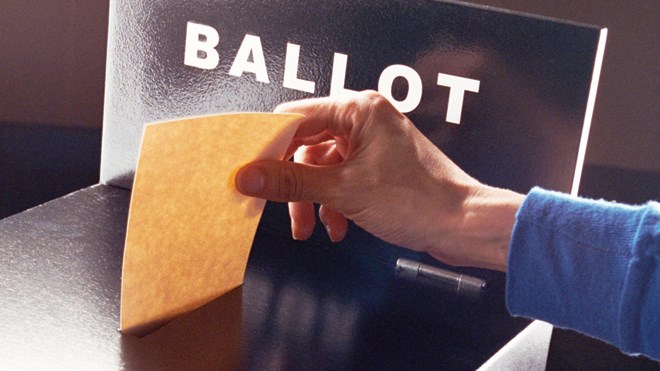OrilliaMatters welcomes letters to the editor. Send your letters to [email protected]. This letter is in response to a letter from Wesley Nicol, published Jan. 11.
********************
As a local supporter of change to our electoral system away from our current so-called first-past-the-post system, I’m glad to see letters in OrilliaMatters that discuss the pros and cons of our current system and its alternatives.
However, at the core of any discussion on this and other topics should be the requirement to stick to facts and to avoid false or misleading statements.
The letter penned by Wesley Nicol fails to meet this requirement.
Following a sub-heading that suggests that Canada’s “very survival” depends on the retention of our current voting system, Nicol then states that adoption of a proportional voting system “would end our country as we know it and undermine the legitimacy of our national Parliament.”
What utter nonsense! (I almost want to apologize to Mr. Nicol for calling his claim 'nonsense,' especially as I believe that discussion of this topic needs to be calm and reasoned in order for those paying attention to be able to weigh the pros and cons of the debate. But 'nonsense' is what his claim is.)
Some 94 countries around the world use a form of proportional representation (PR) — countries like Holland, Germany, New Zealand — and using the electoral system does not reduce the legitimacy of ANY of these countries.
Most objectionable in Mr. Nicol’s letter is the argument he presents in support of his claim that PR would somehow doom our country. He claims that “if we adopted proportional representation we would become a country of only two provinces: Ontario and Quebec.”
I have news for Mr. Nicol and others who make this type of claim: in ANY system of representation by population (and yes, our current system is supposed to be such a system), the provinces that have the largest populations are going to have the most ridings and, therefore, control much of the results of any election.
We saw this in the last federal election. Though the Conservative Party won the highest number of votes, they did not win the highest number of seats, primarily because they were not able to win enough ridings in Quebec and Ontario.
Mr. Nicol’s entire argument is false. If Canada were to choose to adopt a Proportional Representation (PR) electoral system, all provinces would continue to be represented much as they are now.
We would likely see electoral boundaries (i.e. ridings) re-drawn, but the most refreshing aspect of the new system would be that a party’s seats in our parliament would be determined by the proportion of the votes which were cast across the country for that party. In other words, no more would we see a party supported by 40% of the voters claiming 100% of the power to make, or unmake, our laws.
Yes, parties would have to learn to work together. And wouldn’t that be refreshing!
One more comment. Mr. Nicol points to the reality that various Canadian referenda have seen voters support the status quo or the current system. Mr. Nicol’s letter shows why: in any discussion of PR and our current system, the most outrageous claims are made about what adopting PR would do.
And most people, not knowing too much about this alternative, tend to stick with what they know — a not surprising result.
But that result does NOT prove that PR wouldn’t be a better system for our country and for the people that live in it. PR does “make every vote count.”
Our current system keeps giving 100% of legislative power to a party that, when given the opportunity in an election, 60% of voters voted AGAINST.
This is the electoral absurdity that people supporting a move to PR want to end.
Fred Larsen
Oro-Medonte
********************


